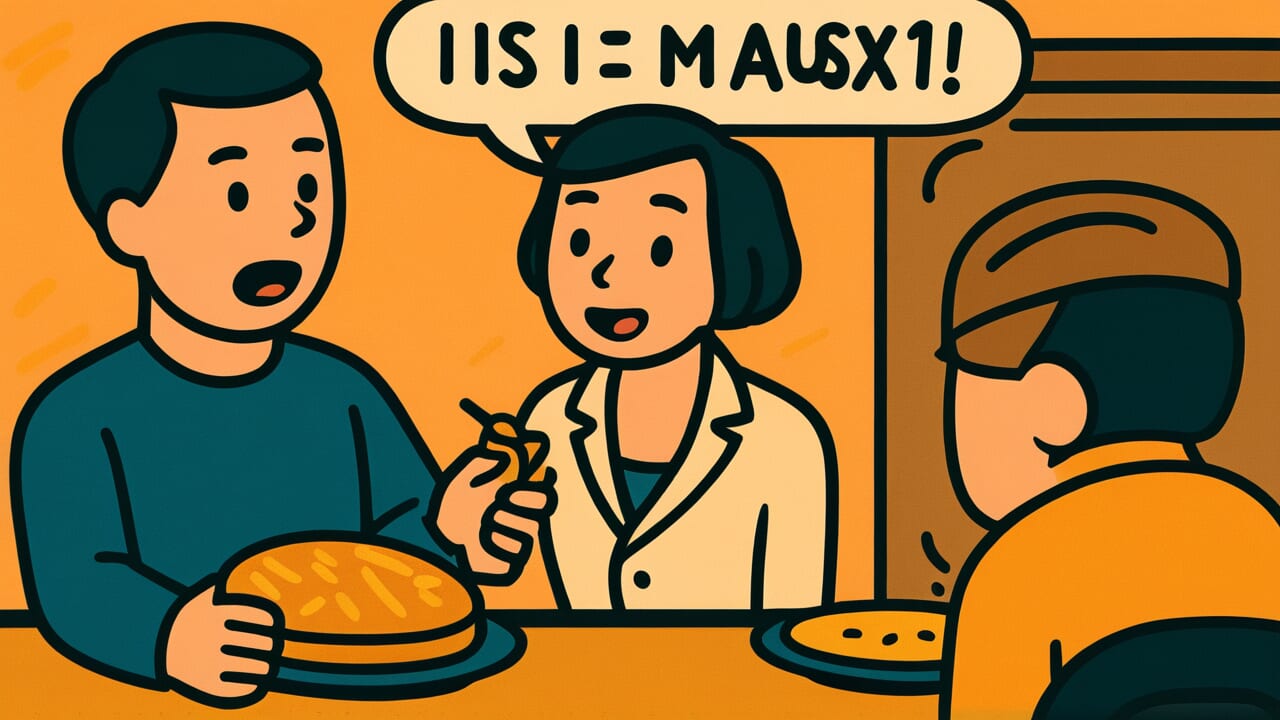How to Read “Eat your food today, say your words tomorrow”
Kū koto wa kyō kui, iu koto wa ashita ie
Meaning of “Eat your food today, say your words tomorrow”
This proverb teaches that you should eat your meals right away, but you should think overnight before speaking.
There’s no need to endure hunger. Eating when you want to eat is important for staying healthy.
But words are different. When you’re emotional, angry, or frustrated, you shouldn’t speak immediately.
Instead, you should wait and calm down before saying what’s on your mind. This is the warning this proverb gives.
People use this proverb when someone is about to speak out of emotion or rush an important decision.
Sleeping on it helps your emotions settle. You can then choose better words to express yourself.
Even today, this wisdom applies to pausing before posting on social media or sending emails.
Words cannot be taken back. That’s why they must be handled carefully. This proverb conveys this universal truth.
Origin and Etymology
The exact first written appearance of this proverb is unclear. Its structure suggests it was born from the practical wisdom of common Japanese people.
The phrase contrasts two basic human actions: eating and speaking.
Eating is directly connected to survival. If you don’t satisfy hunger right away, your strength drops and your health suffers.
Words, on the other hand, cannot be taken back once spoken. This irreversible nature is why speaking requires caution.
In Edo period common society, people widely recognized that verbal mistakes could seriously damage relationships.
For people living in tight-knit communities, careless words could destroy trust. Sometimes they could even shake the foundation of one’s livelihood.
This proverb cleverly contrasts two different dimensions: physical needs and social behavior.
It teaches the balance between priorities and caution in human life.
The immediacy of eating versus the caution of speaking are condensed into one sentence. This represents the crystallization of Japanese practical wisdom.
Usage Examples
- You can eat right away when you’re hungry, but angry words should follow “Eat your food today, say your words tomorrow,” so let’s think it over tonight
- I want to confront my boss with my complaints right now, but “Eat your food today, say your words tomorrow,” so maybe I’ll reconsider tomorrow
Universal Wisdom
This proverb shows the difference in nature between two fundamental human desires.
Hunger is physical. Once satisfied, it disappears.
But the urge to speak, especially emotional speech, is psychological. It can change over time.
Humans are emotional creatures. When anger, sadness, joy, or excitement wells up, we want to express it in words.
But emotions in that moment don’t always accurately reflect our true feelings.
More often, they’re temporarily amplified and distorted emotions.
Our ancestors understood this human nature deeply. The contrast between not needing to endure eating but needing to endure speaking shows their insight.
They saw the essential difference between physical needs and psychological impulses.
Enduring hunger only damages your health. But enduring speech for one night increases the chance of better outcomes.
Time is the best medicine for cooling emotions. Sleeping overnight helps the brain organize information.
Emotions settle down. You regain a more objective perspective.
This proverb reflects our ancestors’ deep insight. They understood human emotional mechanisms through experience and crystallized it into everyday wisdom.
When AI Hears This
The critical difference between food and words lies in entropy, the direction of change in disorder.
Food inevitably deteriorates over time. This is the world governed by the second law of thermodynamics.
Fish develops decay bacteria, vegetables break down through enzyme reactions, and the information state of “being edible” is lost moment by moment.
For example, with sashimi freshness, bacterial count increases exponentially every hour. After 24 hours, food poisoning risk becomes hundreds of times higher according to research.
Food irreversibly moves toward high entropy states. Therefore, immediate consumption is the only option.
Words have the opposite nature. In information theory, message value is measured by how much it reduces receiver uncertainty.
Words spoken in emotional states contain much noise, extra information. The essential signal, what you want to convey, gets buried.
But when you sleep on it, information organization progresses in the brain. Unnecessary emotional noise decays, leaving only the essence you need to communicate.
This is a process where information entropy decreases, meaning quality improves.
This proverb brilliantly distinguishes two different entropy systems. Matter under physical constraints versus information that human thought can improve.
It anticipated through experience what science would later discover as law.
Lessons for Today
This proverb teaches modern people the importance of having courage to pause, especially in an age that values instant reactions.
In today’s society with social media and messaging apps, we can easily express thoughts immediately.
But in exchange for convenience, we tend to undervalue the weight of words.
This proverb reminds modern people of the value of waiting.
Practically, you can write an angry email but save it as a draft instead of sending it.
Sleep on social media posts before publishing. Avoid important conversations when emotions run high.
This isn’t cowardice. It’s consideration that values both yourself and others.
Listen honestly to your body’s voice. Rest when tired, eat when hungry.
But with your heart’s voice, especially intense emotional voices, take a little time to face them properly.
One night will teach you what you truly want to communicate.
Words can become weapons or gifts. The power to choose is in your hands when you make time your ally.



Comments